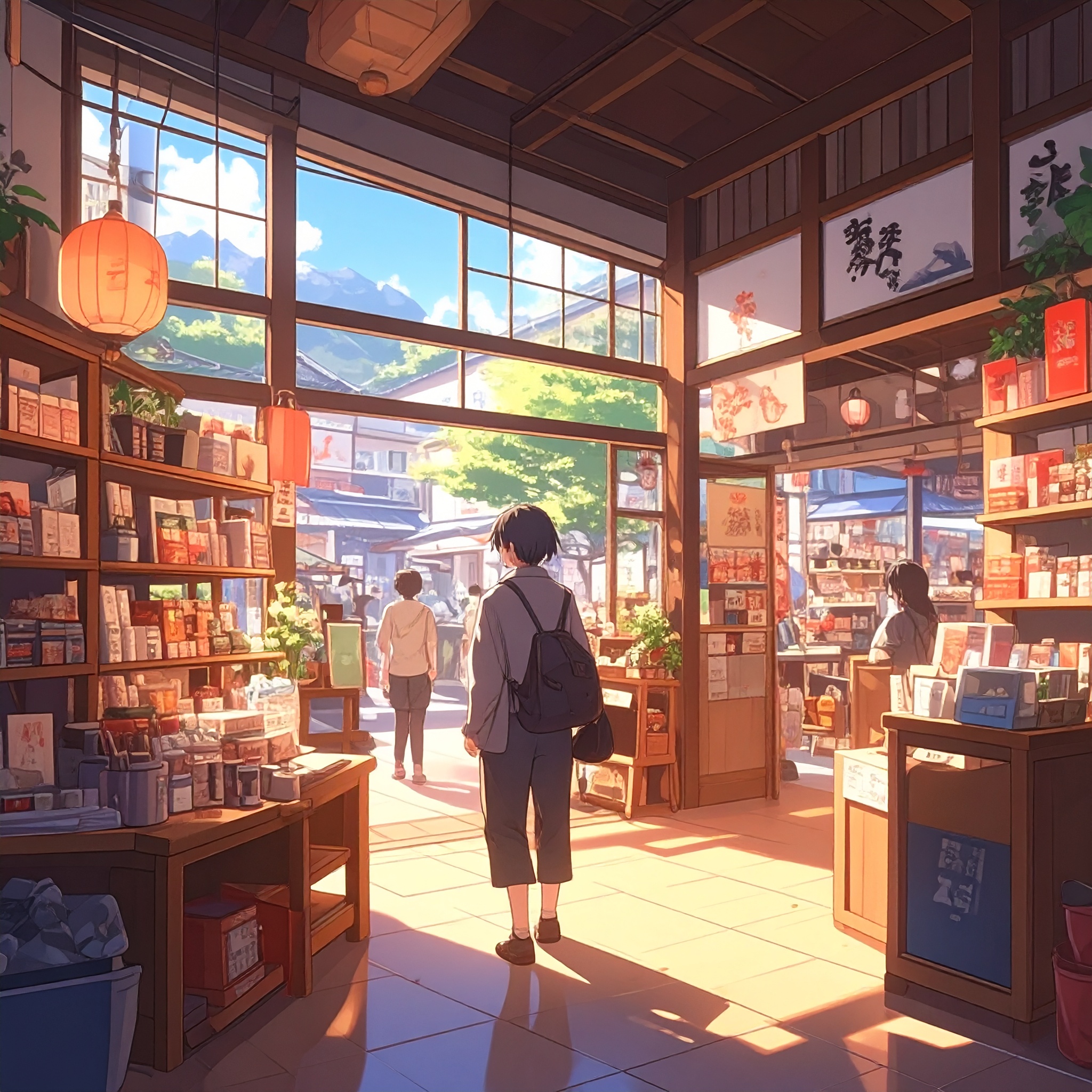While traveling through Japan, I often found myself unexpectedly enchanted by small, tucked-away Japanese gift shops—often just beyond the bustle of a busy sightseeing spot. The moment you slide open the wooden door, a soft scent of washi paper welcomes you. Inside, warm lighting illuminates rows of carefully arranged handmade goods. Time seems to slow, and even if you hadn’t planned on buying anything, suddenly… you want it all.
On the shelves, you’ll find tiny porcelain plates, tenugui (Japanese cloths), chopstick rests, glass wind chimes, miniature figurines, washi envelopes, bamboo baskets, incense holders, and more—each with a unique character. Many are one-of-a-kind, crafted by local artisans, and you get the feeling you may never come across the same item again. They’re compact, practical, and quietly beautiful—objects that feel like they would gently support you in daily life.
I was especially drawn to items made from washi paper and fabric: pastel-toned pouches, coasters with seasonal flower designs, hand-dyed handkerchiefs. Touching them revealed their soft textures and the subtle care behind each design. They weren’t flashy, yet each piece radiated quiet charm—an embodiment of what I came to see as “the understated beauty of Japan.”
One corner of the shop was dedicated to seasonal themes: cherry blossoms in spring, goldfish and morning glories in summer, maple leaves in autumn, camellias and snow bunnies in winter. Even just browsing, you could feel the seasons. It was a beautiful reminder of the Japanese sensitivity to time, nature, and gentle transition. The shop’s atmosphere changes with the seasons, offering a new sense of wonder with every visit.

Among the many irresistible items in a Japanese gift shop, it was the paper goods—wrapping paper, pochibukuro (small decorative envelopes), and stationery—that truly captivated me. Delicate washi textures adorned with gold and silver foil, embossed patterns, and watercolor-like gradients made each sheet feel like a work of art even before anything was written. They made me want to write letters to someone special. Even a few simple words, I felt, would be enough—because the paper itself carried its own heartfelt message.
What made these shops even more special was the story behind each item. The owner’s handpicked selections—ceramics, bells, utensils—reflected a distinct taste rarely found in larger stores. “This dish comes from a pottery studio in Gifu,” or “This wind chime is crafted using Edo-period techniques—it has a softer tone.” Each explanation turned a purchase into something more: a meaningful encounter, not just a transaction.
Prices were also reasonable, making these perfect as personal souvenirs or thoughtful gifts for friends and family. Many were lightweight and compact—ideal for slipping into a suitcase. And once home, each item had the power to bring the memories of Japan quietly back into everyday life. These weren’t just souvenirs—they were time capsules of the heart.
A traditional Japanese gift shop isn’t simply a place to buy things. It’s a quiet window into Japanese life—where aesthetics, practicality, seasonal sensibilities, and a gentle spirit of hospitality quietly reside. There’s no need for bright lights or big signs; what you find here stays with you long after the journey ends.
When I return to Japan, I’ll be seeking out those quiet little shops again. I want to take my time, slowly scanning the shelves, and find another “small story” to bring home. Japanese goods remind me that to bring back a part of Japan isn’t just about what you buy—it’s about how it makes you feel every time you use it.




